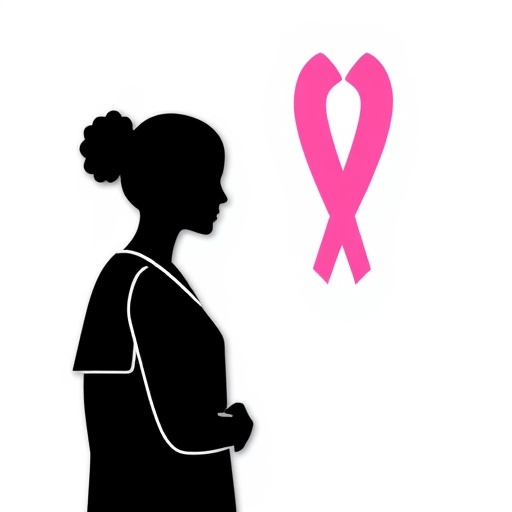In an era where digital health interventions are rapidly transforming patient care, a groundbreaking study published in BMC Psychiatry introduces a novel approach integrating technology with psychological and rehabilitative therapies for breast cancer patients. The research investigates the efficacy of a WeChat-based self-help psychological intervention combined with physical rehabilitation exercises, marking an important advancement in psycho-oncological treatment paradigms.
Breast cancer, a leading cause of morbidity and mortality among women worldwide, intertwines physical health challenges with psychological distress. Patients often grapple with acceptance of their disease, heightened emotional volatility, and existential fears related to mortality. Addressing these psychological components is critical, yet conventional methods often lack accessibility and personalization. The utilization of WeChat, a dominant social media and communication platform, for health interventions opens new avenues for remote, scalable, and patient-centric care.
The quasi-experimental study conducted from 2018 to 2019 enrolled eighty breast cancer patients, divided non-randomly into an observation group and a control group to ascertain comparative outcomes. The control group received standard health education through WeChat, focusing on general information and disease management. Contrastively, the observation group was exposed to a comprehensive self-help program that included cognitive reappraisal techniques and gratitude journaling, paired with rehabilitative activities like abdominal breathing and aerobic exercise. These components aim to synergistically enhance emotional regulation and physiological well-being.
Clinical psychology acknowledges cognitive reappraisal as a potent strategy that allows patients to reframe distressing situations, thereby diminishing negative emotional responses. Gratitude journaling complements this by fostering positive affect and psychological resilience. Combining these with rehabilitative exercises serves to empower patients physically and mentally, creating a holistic intervention model targeting multiple psychosocial dimensions of cancer care.
Assessment tools utilized in the study were thoughtfully selected for their validity and relevance. Instruments such as the Self-Acceptance Questionnaire gauged patients’ acceptance and integration of their illness into self-concept. The Positive and Negative Affect Scale identified fluctuations in emotional states, while the Death Attitude Profile-Revised elucidated patients’ cognitive and emotional attitudes toward death, a critical yet understudied aspect in oncology psychology.
Furthermore, the Connor-Davidson Resilience Scale measured mental toughness and the ability to recover from adversity, a trait imperative in chronic disease management. Psychological distress thermometers provided real-time distress monitoring, and the Mindful Attention Awareness Scale assessed patients’ presence and awareness, which are known to mitigate stress and improve mental health outcomes.
The study’s findings reveal that the WeChat-based intervention yielded statistically significant improvements in self-acceptance, positive emotional states, psychological resilience, and mindfulness compared to the control cohort. Equally noteworthy was the marked reduction in psychological distress, negative affect, and death-related fears among the intervention recipients. These results underscore the integral role of digital psycho-oncology programs in reshaping emotional experiences related to breast cancer.
Mindfulness, a practice rooted in present-moment awareness devoid of judgment, was enhanced through guided exercises in the intervention group. This facet of the program is particularly salient given the accumulating evidence linking mindfulness with decreased anxiety, improved coping, and elevated quality of life among patients facing life-threatening illnesses. The intervention’s ability to elevate mindfulness levels suggests a promising mechanism through which psychological morbidity can be alleviated.
In addition to psychological benefits, the study reports a significant uptick in patient satisfaction with nursing care in the intervention group. This finding potentially reflects the holistic and personalized approach facilitated by digital platforms that foster continuous patient engagement and empowerment. Nursing satisfaction is a vital metric often correlated with adherence to treatment plans and overall clinical outcomes.
From a broader healthcare perspective, the study advocates for the integration of mobile health (mHealth) technologies within psycho-oncological care frameworks. Mobile platforms like WeChat penetrate cultural and socioeconomic barriers, offering ubiquitous access and flexibility especially pivotal during public health crises or for patients in remote regions.
The synergistic intervention’s success supports the theory that psychological and physical interventions, when delivered in tandem and leveraged through digital interfaces, produce compounded benefits surpassing isolated treatment modalities. This integrative approach aligns with emerging holistic medical models emphasizing biopsychosocial dimensions of health rather than purely biomedical perspectives.
It is critical to acknowledge the quasi-experimental design limits randomization, which could introduce selection biases. Future studies employing randomized controlled trials with larger and more diverse cohorts will be instrumental in verifying these promising outcomes and refining intervention components based on patient demographics and disease stages.
Moreover, the use of validated psychological instruments before and after intervention ensures rigorous evaluation of patient status, providing a robust methodological foundation. Such comprehensive measurements allow nuanced insights into the multifaceted impacts of digital interventions beyond symptom reduction, encompassing existential attitudes and resilience capacities central to long-term survivorship.
In conclusion, this pioneering study not only charts a promising pathway for breast cancer rehabilitation but also heralds a paradigm shift in leveraging popular communication technologies for delivering sophisticated, scalable, and effective psychosocial care. The integration of self-help psychological methods with physical rehabilitation exercises via accessible platforms like WeChat may revolutionize patient support systems and substantially improve quality of life and treatment outcomes.
As the medical community steadily adapts to digital innovations, it is essential that future research explores customization potentials, engagement dynamics, and longitudinal impacts of such interventions to maximize their therapeutic value. The findings of this study illuminate a future wherein digital health platforms serve as critical conduits bridging psychological resilience and holistic healing in chronic disease contexts.
Subject of Research: Psychological and rehabilitation interventions for breast cancer patients utilizing a WeChat-based platform to enhance disease acceptance, emotional well-being, death attitudes, resilience, and mindfulness.
Article Title: Effects of a WeChat-based self-help psychological and rehabilitation intervention on disease acceptance, emotional states, death attitudes, resilience, and mindfulness in breast cancer women.
Article References:
Guo, X., Hu, J., Xiong, Z. et al. Effects of a WeChat-based self-help psychological and rehabilitation intervention on disease acceptance, emotional states, death attitudes, resilience, and mindfulness in breast cancer women. BMC Psychiatry 25, 1064 (2025). https://doi.org/10.1186/s12888-025-07519-3
Image Credits: AI Generated
DOI: 10.1186/s12888-025-07519-3
Keywords: breast cancer, WeChat, self-help intervention, psychological resilience, mindfulness, disease acceptance, emotional states, rehabilitation exercises, psycho-oncology, digital health.




